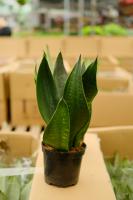What Is a Chiller Water Plant?
A chiller water plant is a system used to cool buildings or industrial processes by circulating chilled water throughout the system. Chilled water plants typically consist of several pieces of equipment, including a chiller, pump, cooling tower, and control system. These systems are commonly used in large commercial or industrial facilities, such as hospitals, data centers, and manufacturing plants.
How Does It Work?
The chiller water plant works by refrigerating water, which is then circulated throughout the building or industrial process. The chilled water absorbs heat from the environment and returns to the plant, where it is cooled again by the chiller. The process is repeated continuously to maintain the desired temperature in the facility.
Types of Chillers
There are several types of chillers commonly used in chiller water plants, including air-cooled, water-cooled, and absorption chillers. Air-cooled chillers use fans to transfer heat from the refrigerant to the air, while water-cooled chillers transfer heat to a separate water loop. Absorption chillers use heat to drive a refrigeration cycle, making them more energy-efficient in certain applications.
Advantages of Chiller Water Plants
Chiller water plants offer several advantages over other cooling systems, including higher energy efficiency, lower maintenance costs, and more precise temperature control. They can also be easily expanded as the needs of the building or industrial process change, making them a flexible solution for cooling large facilities.
Disadvantages of Chiller Water Plants
There are several disadvantages to chiller water plants, including their high upfront cost and complexity. The systems require skilled technicians to operate and maintain, which can add to the overall cost of the system. Additionally, the higher energy efficiency of these systems may not be necessary for smaller facilities or applications.
Conclusion
In conclusion, chiller water plants are a common cooling system used in large commercial or industrial facilities. While they offer many advantages, such as higher energy efficiency and more precise temperature control, they also come with some disadvantages, such as higher upfront costs and complexity. Ultimately, the decision to use a chiller water plant will depend on the specific needs and goals of the facility or industrial process.

 how many times do yo...
how many times do yo... how many planted tre...
how many planted tre... how many pine trees ...
how many pine trees ... how many pecan trees...
how many pecan trees... how many plants comp...
how many plants comp... how many plants can ...
how many plants can ... how many plants and ...
how many plants and ... how many pepper plan...
how many pepper plan...
































